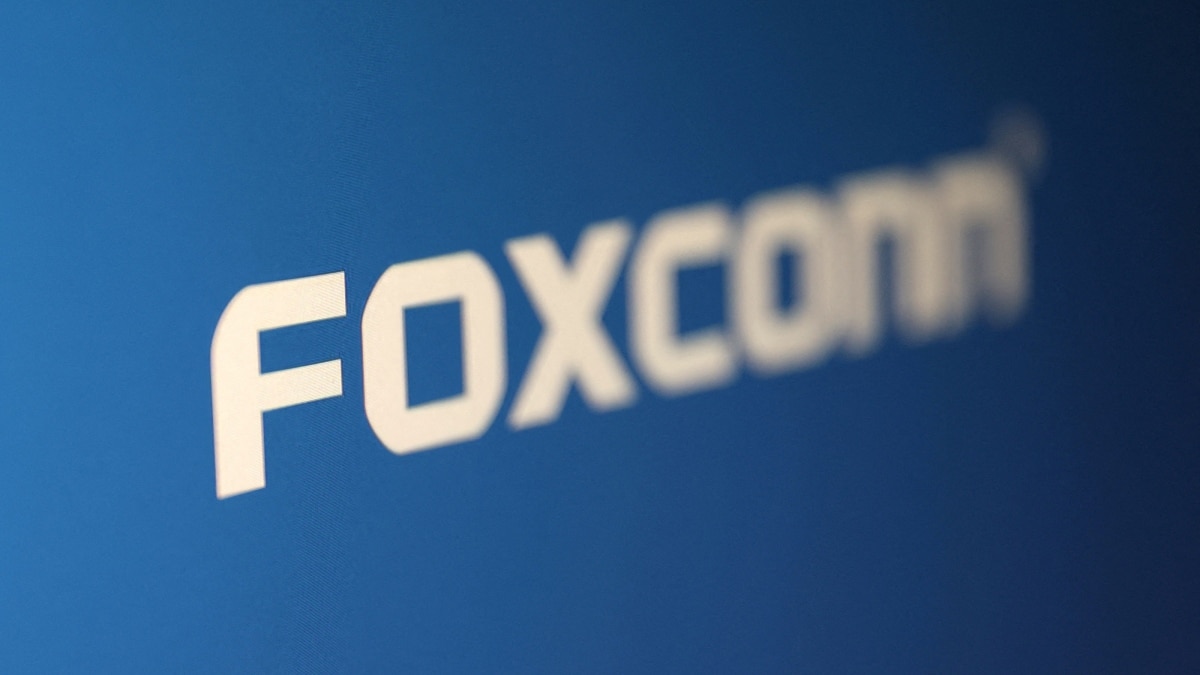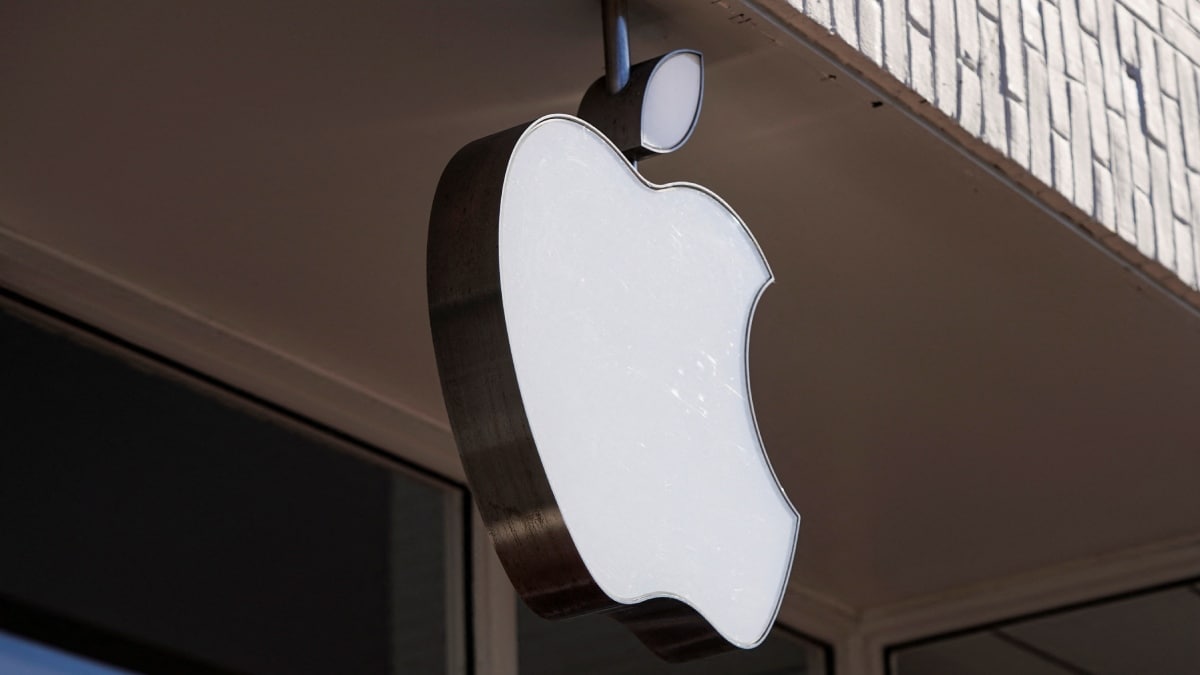Gadgets And Technology Daily News | 01 Jul 2023

Views (140)

Windows 11 Preview Adds Biometric Login for Websites and Apps via Windows Hello: Details

Windows 11 will soon add support for biometric authentication for logging in to websites, and functionality for the feature has been spotted on the latest preview version of the operating system. Microsoft already allows users to log in to their PC using their face, fingerprint, or a PIN, and the new functionality will let users seamlessly sign in to a site or application with passkeys support, without entering a password. Unlike traditional passwords, passkeys are considered a secure option as they cannot be stolen from a hacked server, and support for password-less logins is already available on iOS and Android.
In a recent blog post announcing the rollout of Windows 11 Insider Preview Build 23486, Microsoft states that users can now visit an app or a website with support for password-less logins on Windows — such as Ebay, Google, and Best Buy — and create a passkey from their account settings. They can then sign in to their account again using the newly created passkey using a face, fingerprint, or PIN via Windows Hello.
According to the company, users can also sign in to websites by creating and saving a passkey on their smartphone while using Microsoft Edge, then visiting a website on their Windows PC and log in to the website using the passkey stored on their handset.
In order to easily manage and control the use of password-less logins on Windows, Microsoft says users can access all passkeys via the Windows Settings app. The controls for passkeys is located at Settings > Accounts > Passkeys, and the section will show a list of all passkeys saved on the PC. Individual website passkeys can be searched and deleted from the same menu, according to the company.
The introduction of passkeys and password-less logins is expected to improve security for users as passwords aren't saved on a website's server, protecting users' logins from being stolen during a data breach. According to Microsoft, the latest passkey login for websites and apps is supported on Insider Preview Build 23486, which means that users on the stable channel will have to wait for a while before it is rolled out by the company.
Apple's Market Capitalisation Reaches $3 Trillion as Company Explores VR Sector

Apple's market capitalization on Friday breached the $3 trillion (nearly Rs. 2,46,09,660 crore) mark for the first time since January last year, as investors bet on the iPhone maker's ability to grow its revenue even as it explores new markets such as virtual reality.
Shares of Apple, which is also the world's most valuable- listed company, were up 1.3 percent at $191.99 (nearly Rs. 15,750) in morning trading.
Apple's market value briefly peaked above $3 trillion in intra-day trading on January 3, 2022, before closing the session just below that mark.
The latest gains in Apple shares come as technology stocks rebound on bets that the Federal Reserve may be slowing its pace of interest rate hikes as well as on the buzz around artificial intelligence.
Apple's better-than-expected iPhone sales during its second quarter and the introduction of new products, including an augmented-reality headset called the Vision Pro in June, highlight the tech giant's resiliency in an uncertain economy.
Currently, four other US companies have a valuation of more than $1 trillion (nearly Rs. 82,04,350 crore) -- Alphabet, Microsoft, Amazon.com and Nvidia.
Apple shares have jumped nearly 46 percent this year, while those of Tesla and Meta Platforms have more than doubled.
A near 180 percent gain in shares of Nvidia in 2023 has catapulted the chipmaker into the trillion-dollar club.
Recently, the company was reported to be planning to seek to fend off a revised EU antitrust charge and possible hefty fine linked to claims it prevents music streaming companies such as Spotify from informing users of other buying options outside its App Store. The iPhone maker will set out its arguments to senior European Commission officials and their peers at national competition agencies at a closed hearing in Brussels.
© Thomson Reuters 2023
Meta Now Allows Secure Chat Transfer Between Devices on WhatsApp Using QR Code

Meta chief executive officer Mark Zuckerberg on Friday announced a new feature on the platform's instant messaging app, WhatsApp. According to the Meta CEO, users will now be allowed to transfer their chat history between devices conveniently and in a secure way. Currently, both the devices need to work on the same OS (operating system) for the transfer to take place. The new feature makes the process easier and faster to transfer messages as well as larger attachments from one device to another.
In a post shared by Meta CEO on his official Facebook handle, Zuckerberg wrote, "If you want to move your WhatsApp chats to a new phone, you can now do it more privately without your chats ever leaving your devices." Apparently, now the users will be able to share the chat history with the help of QR code authentication. He also shared a demonstration video to explain the new process.
While WhatsApp already allowed users to transfer their chat history from one phone to another, the new method of chat transfer using QR code makes the process more safe. Currently, users can transfer their chat history by either using third party apps, or by updating the backup on cloud services.
However, with the new process, users do not need to exit their app on one device to transfer the data on the other phone. The data remains only between two devices, without any third party apps or clod services in between, and stays safe.
Users will therefore not be required to take a backup of the data for the purpose of transferring that chat history or media files. In order to transfer using QR code, both devices should be physically connected to Wi-Fi and location enabled. One can transfer chats and media from an old phone by going to Settings > Chats > Chats Transfer > Scan the QR code using the new device.
Oppo Reno 10 5G Series Will Launch Soon in India, Pricing Tipped: All Details

Oppo Reno 10 5G series is expected to launch in India soon, but ahead of its official release, pricing of the phones has been tipped online. The flagship handsets are expected to start from Rs. 30,000 in the country. The latest Reno 10 series comprising the Oppo Reno 10, Reno 10 Pro, and Reno 10 Pro+ were launched in China in May. In India, the handsets will be available for purchase via Flipkart. The Indian variant of Oppo Reno 10 Pro+ is teased to run on an octa-core Qualcomm Snapdragon 8+ Gen 1 SoC.
Known tipster Abhishek Yadav (@yabhishekhd) has leaked the pricing details of the Oppo Reno 10 series on Twitter. According to the tipster, the price of the Oppo Reno 10 will start at around Rs. 30,000 in India. The Oppo Reno 10 Pro, on the other hand, could cost Rs. 40,000 for the base RAM and storage variant. Meanwhile, the Oppo Reno 10 Pro+, being the most premium option in the new series, is said to come with an initial price tag of Rs. 50,000.
In China, the Oppo Reno 10 5G price starts at CNY 2,499 (roughly Rs. 29,000) for the base 8GB RAM + 128GB storage model. Whereas, the Oppo Reno 10 Pro 5G's price has been set at CNY 3,499 (roughly Rs. 41,000) for the base 16GB RAM + 128GB storage version. The Oppo Reno 10 Pro+ 5G has a starting price tag of CNY 3,899 (roughly Rs. 45,000) for the base 16GB RAM + 256GB storage variant.
Flipkart and Oppo have a dedicated microsite teasing the specifications of the Oppo Reno 10 5G series. The exact launch date is yet to be confirmed, but it is anticipated to go official in mid-July. The Indian variant of Oppo Reno 10 Pro+ 5G will have a 64-megapixel telephoto portrait camera with optical image stabilisation (OIS), a 50-megapixel Sony IMX890 sensor with OIS and an 8-megapixel Sony IMX355 wide-angle camera. On the front, it has a 32-megapixel shooter for selfies and video chats.
On the front, all models will flaunt a 32-megapixel shooter for selfies and video chats. The Indian variant of the Oppo Reno 10 Pro+ is confirmed to run on an octa-core Qualcomm Snapdragon 8+ Gen 1 SoC.
US SEC Said to Have Raised Concerns About Bitcoin ETF to Asset Managers

The US Securities and Exchange Commission (SEC) has said recent applications by asset managers to launch spot bitcoin exchange-traded funds (ETFs) were not sufficiently clear and comprehensive, a source familiar with the matter said.
The SEC has communicated its concerns to the exchanges Nasdaq and Cboe Global Markets which filed the applications on behalf of asset managers including BlackRock and Fidelity, the source added on Friday.
Bitcoin, which has jumped since BlackRock filed its application on June 15, fell after the Wall Street Journal first reported the SEC rejection on Friday. The world's largest cryptocurrency was last down 1 percent at $30.142 (nearly Rs. 2,500).
The SEC, Fidelity, BlackRock and Nasdaq declined to comment on the report, while Cboe was not immediately available.
The ETF filings by such major firms had sparked renewed investor hopes that a bitcoin ETF would finally be approved by the SEC, and revived interest in cyptocurrencies, which have been hit by a series of crypto company meltdowns including the sudden collapse of exchange FTX late last year.
The SEC has rejected dozens of spot bitcoin ETF applications in recent years, including one from Fidelity in January 2022.
In all the cases, it said the filings did not meet the standards designed to prevent fraudulent and manipulative practices and protect investors and the public interest.
In a bid to address these concerns, the BlackRock and Fidelity filings proposed a surveillance mechanism aimed at preventing manipulation, but the applicants did not name which bitcoin exchange would be involved.
Blockchain-related stocks fell following the SEC's decision, with Coinbase, Riot Platforms and Marathon Digital between 3 percent and 3.7 percent lower.
© Thomson Reuters 2023
iPhone Supplier Foxconn to Invest $250 Million for EV Components Unit in Vietnam

Foxconn is set to invest about $250 million (nearly Rs. 20,500 crore) in two new projects in Vietnam, including for the production of components for electric vehicles (EVs), the world's largest contract electronics assembler and local authorities said on Friday.
The move confirms Foxconn's global plans to become a player in the EV industry, after having focused for years on assembling electronic products for Apple and other major brands.
The Taiwanese giant, through its unit Foxconn Singapore, is set to invest approximately $250 million in an industrial park in northern Vietnam, "focusing on the production of electric vehicle components, controllers and other products to meet future development needs," it said in a statement to Reuters.
The new projects would take its total investment in the southeast Asian manufacturing hub to about $3 billion (nearly Rs. 24,600 crore) in nearly two decades since it built its first plant there, confirming its wider plans to expand outside of China amid continuous tensions between Beijing and Washington.
Local authorities confirmed they had authorised Foxconn's new investment. The largest chunk of the new funding, about $200 million, will go into a factory to produce EV chargers and components, which is scheduled to start production from January 2025 with a workforce of 1,200 people, authorities said.
The remaining $46 million (nearly Rs. 375 crore) is for a plant to produce electronics and telecommunication components, with production set to begin in October 2024.
Both facilities will in the province's Song Khoai Industrial Park, 138 km (86 miles) east of Hanoi.
"With roots that go back more than 15 years, Foxconn's base in Vietnam is one of the key locations in our global footprint," the company said in the statement to Reuters.
Foxconn also plans to set up a new factory in Vietnam's central province of Nghe An with an initial investment of $100 million (nearly Rs. 820 crore), the provincial local authority said last month.
© Thomson Reuters 2023
0 Likes
